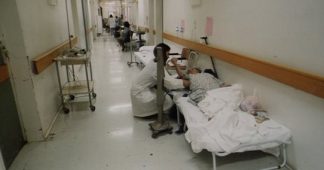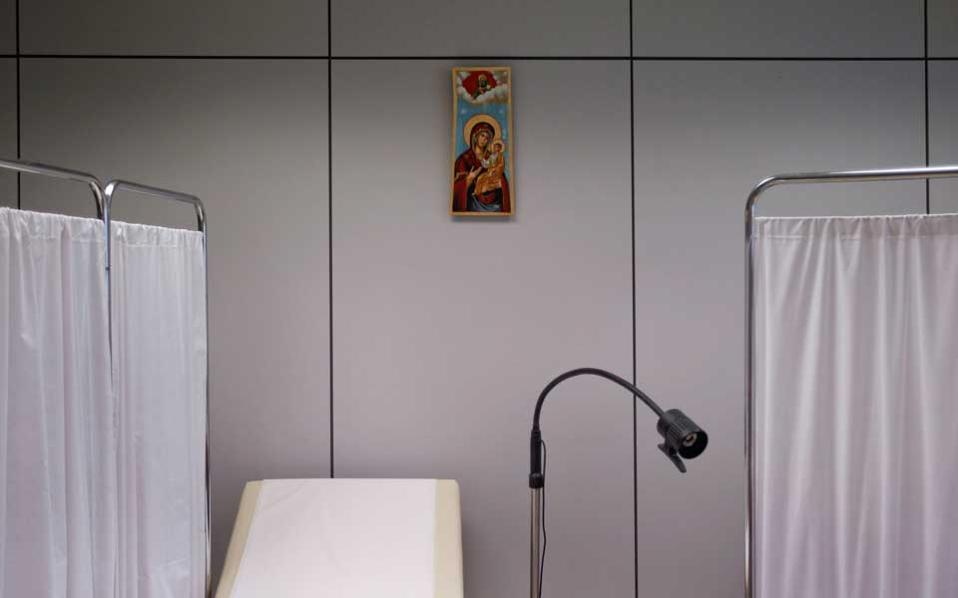Public healthcare in Greece is becoming worse day by day. Since government funding has been significantly reduced in the last decade. This is because of the financial crisis that is “struggling” in Greece. There are stories on the news on a daily basis about the problems caused to ill and wounded citizens. The reason is because of the lack of resources that is very typical nowadays. Even at the most important hospitals of the country.
Medicine health care is barely working anymore
An example of how thing work now; is an incident that a cousin of mine faced a couple of weeks ago. My cousin Anna had been scheduled to do a CAT scan at a big public hospital in Athens. But when she arrived at the hospital, she was informed that the exam could not be possible; since the CAT scanner was damaged. When she asked when they would rearrange her appointment for the exam; they told her, after four months…
This is more or less a classic scene in a Greek public hospital during the years of crisis. There are many similar structural deficiencies.
Anna, of course, could not wait for 4 months to make the exam. So she was eventually forced to go to a private hospital; and pay 600 euros in order to make the examination. We are talking about a person pays her taxes and healthcare contributions. Not a poor or homeless people that cannot afford any of these. Experience tells that the Greek medicine and health system has little to do with another country belonging to the EU right now.
Less resources; worse medicine healthcare
In fact, the medicine and health system in Greece continues to crumble. The funding of public hospitals has decreased more than 50% from 2009 to today. The shortcomings are obvious: there are not even basic materials. Such as alcohol swabs, syringes, while human resources; doctors and nurses; are less than what they really need hospitals.
Public spending on medicine and health in Greece is expected to shrink to 4% of GDP by the end of 2015; one of the worst in the EU. I should note here that from what I was able to find over the internet; the average expenditure reaches 6.9%. That is according to data from the Greek National Medical Association.
The problems do not end. Since the current deficit of public healthcare reaches 1.5 billion euros. Experts note that the new agreement signed by Greece will be able to face the situation. As new cuts are to be made while there’s further extension of austerity.
A growing problem that affects all patients
Many of us are unfortunately forced to be treated with medicine in private hospitals. Last year my 83 year old grandmother suffer suffered a stroke. When the ambulance came to her home to take her to the hospital, the nurses told my mother not to go to the hospital on duty. This was because it was overcrowded. Hence, it would take hours in order for the doctors to examine my grandmother.
However, my mother chose the alternative medicine in a private hospital. Of course, she paid the appropriate price for this decision: 800 euros for three days of hospitalization. My family could fortunately afford the situation. But that does not apply, however, to all Greeks. Especially for the 2.5 million people that remain uninsured at the moment. For them, access to healthcare is a certainly huge challenge.
Nonetheless, I would also like to give another example. So as everybody can understand better what exactly is going on In Greece. A friend of mine is working as a nurse in another public hospital in Athens. She has told be all about the under-staffing of hospitals and the difficult conditions. As a nurse during the night shift; he has to take care of 20-25 patients.
According to the government
The medicine and healthcare system requires at least an additional 4,500 doctors. As well as other medical and paramedical staff; in order for public healthcare to work properly. But other independent sources say that at least 5,000 doctors as well as 15,000 nurses are missing from the system. Apart from the fact that the government is not hiring new stuff during the last few years. Many Greek doctors and nurses leave Greece; and go to work to other countries like Germany, England, Cyprus and Sweden. The average salary of a doctor in a public hospital in Greece is 1200-2000 euros per month. Payment delays are frequent.
With that said, it’s evident that public medicine healthcare; and Greece in general; is severely underactive. The options that a patient has is either go to a private clinic. Perhaps even illegally pay in order to climb higher on long waiting lists…











